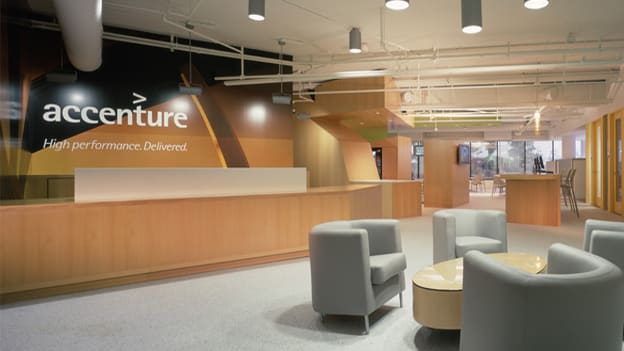Accenture offers AI solution to assist visually impaired employees

Accenture, leading global professional services company, recently developed a new artificial intelligence (AI) powered solution to help visually impaired to be more productive at work. The initiative is called ‘Drishti’, which is part of Accenture’s Tech4Good platform. It aims to apply technology to improve the way the world lives by solving complex social challenges.
Paul Daugherty, chief technology & innovation officer, Accenture, says “Accenture believes diversity is a source of innovation, creativity and competitive advantage. This Tech4Good solution is a great illustration of how AI technology can empower humans by augmenting their capabilities so they can achieve more for themselves and the world around them. This work reflects our longstanding commitment to inclusion and diversity, and our effort to create a ‘truly human’ environment where people can be who they are, and be their best, both professionally and personally.”
The program will provide smart phone-based assistance using AI technologies such as image recognition, natural language processing and natural language generation capabilities to describe the environment of a visually impaired person.
“Drishti is a powerful example of how advanced and emerging technologies can be used for good to address complex human challenges. This project resulted from an opportunity we saw to build a more inclusive workplace for our visually impaired colleagues,” said Sanjay Podder, managing director of Accenture Labs in Bangalore, Accenture Tech4Good lead and Eisenhower Fellow. “By harnessing the rapid advancements in AI technology, we’ve demonstrated – through the pilot with the National Association for the Blind in India, as well as with Accenture’s own employees – the impact innovative solutions such as this can have on improving the way people live and work.”
In collaboration with National Association for the Blind in India, the platform was tested with 10 blind professionals. The AI solution provided narration to the user on the number of people in a room, their ages, genders and even emotions based on facial expressions. It can also be used to identify and narrate text from books and documents, including currency notes, and identify obstructions like glass doors to improve the safety of the user.
Pallavi Kadam, Executive Director, National Association for the Blind in India, said, “Accenture shares our mission to empower the visually challenged in the workplace. Through the innovative use of technology, we’ve seen first-hand how the Drishti solution Accenture developed can enable visually impaired individuals to lead more inclusive and productive lives. This project makes us excited for a not-too-distant future where the widespread use of technologies such as this will have a significant and positive impact on the blind community.”
Accenture is working steadfastly towards inclusion and diversity in corporates. The solution is currently being piloted at Accenture in South Africa, and a Spanish language version is being tested with Accenture employees in Argentina.

















